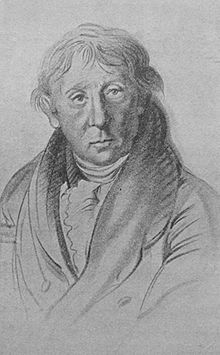Friedrich Wilhelm von Reden
| Friedrich Wilhelm | |
|---|---|
| Freiherr von Reden | |

Friedrich Wilhelm von Reden
|
|
| Born |
23 March 1752 Hamelin |
| Died | 3 July 1815 (aged 63) Schloss Buchwald |
Friedrich Wilhelm von Reden (23 March 1752 – 3 July 1815) was a German pioneer in mining and metallurgy. He was born in Hamelin in the Electorate of Hanover and died in Schloss Buchwald in Prussian Silesia.
Reden came from the noble family of , in which mining was a long-standing interest. He was the nephew of the Hanoverian Berghauptmann Claus Friedrich von Reden, as well as of Friedrich Anton von Heynitz, a reformer of Prussian mining and metallurgy. One of his cousins was the leading American mountain man Friedrich Otto Burchard von Reden.
In 1768 Reden began an apprenticeship at various mines of the Oberharz. Between 1770 and 1773 he was a student at Göttingen and at Halle. After passing the civil service examination to become an administrative officer, he travelled through Holland, England, and France, visiting mines and metallurgical plants. At the Freiberg University of Mining and Technology, he took a degree in mineralogy and geology under the supervision of Abraham Gottlob Werner. In 1777, he entered the Hanoverian civil service, and was soon appointed by Friedrich Anton von Heynitz to Berlin, in the Department of Mines.
In the late 18th century, Reden played an important role in the development of industry in Silesia. For example, on Reden's initiative, in 1787 one of the first steam-powered pumps in continental Europe was installed in an ore mine at Tarnowitz. Together with John Baildon, Reden was responsible for the introduction of coke into modern steelmaking process in Europe (in Gleiwitz (Gliwice), 1796, and, on a large scale, in Königshütte (Chorzów), 1802).
...
Wikipedia
